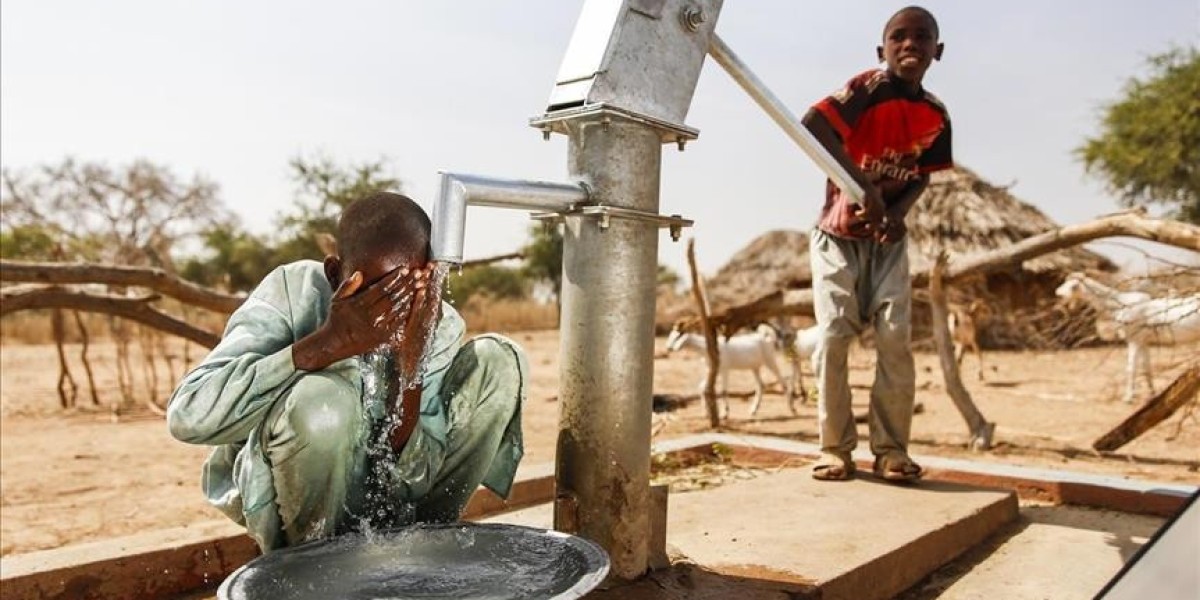In the heart of Africa, a continent known for its breathtaking landscapes, diverse cultures, and vibrant history, lies a critical issue that has persisted for generations—access to clean and Water Well in africa. For millions of people, the simple act of turning on a tap is a distant dream. This harsh reality underscores the vital role that water wells play in transforming lives and communities across the region.
The Water Crisis in Africa
The statistics surrounding water access in Africa are staggering. According to the World Health Organization (WHO), approximately 319 million people in sub-Saharan Africa lack access to reliable sources of drinking water. This crisis is not just about quenching thirst; it impacts health, education, and economic stability. Contaminated water sources lead to waterborne diseases like cholera and dysentery, which claim thousands of lives annually, particularly among children under five.
Moreover, the burden of collecting water often falls on women and young girls. They walk for hours each day to distant, often unsafe sources, a task that consumes their time and energy, keeping them from attending school or engaging in productive activities. This cycle of poverty and disease perpetuates itself, making it clear that access to clean water is a cornerstone of development.
The Lifeline of Water Wells
Water wells, particularly those equipped with hand pumps, have emerged as a beacon of hope for many African communities. These wells tap into underground aquifers, providing a reliable and clean water source. The benefits of water wells are manifold and transformative:
- Health Improvement: Access to clean water drastically reduces the incidence of waterborne diseases. Communities with water wells experience significant improvements in health, leading to lower medical costs and fewer days lost to illness.
- Educational Opportunities: When water is readily available, girls who previously spent their days fetching water can attend school. Education is a powerful tool in breaking the cycle of poverty and empowering future generations.
- Economic Growth: Time saved from fetching water allows individuals to engage in income-generating activities. Agriculture, which relies heavily on water, can thrive, leading to better food security and economic stability.
- Community Empowerment: Water wells often become a central point of the community, fostering a sense of ownership and collective responsibility. Training locals to maintain and repair wells ensures sustainability and self-reliance.
Real-Life Impact: Stories from the Field
In the village of Kitui, Kenya, the construction of a water well transformed the entire community. Previously, residents relied on a contaminated river several kilometers away. The introduction of a Starving African Children reduced the incidence of diarrhea and other waterborne diseases by over 50%. Moreover, the local school saw a 30% increase in attendance, particularly among girls. This single intervention sparked a cascade of positive changes, highlighting the profound impact of water wells.
In Malawi, the story is similar. A small village that once struggled with inconsistent water supply now boasts a thriving agricultural scene, thanks to a well installed by a non-governmental organization (NGO). The well has enabled the community to irrigate their crops, leading to surplus production that is sold in nearby markets. The economic uplift has been substantial, providing funds for further community development projects.
Challenges and Solutions
Despite the clear benefits, the implementation and maintenance of water wells in Africa face significant challenges. Financial constraints, geographical barriers, and political instability can impede progress. However, innovative solutions and international collaborations are making a difference.
- Sustainable Technology: Solar-powered water pumps are being introduced to replace hand pumps. These systems are more efficient and can provide a steady water supply with minimal human effort.
- Community Involvement: Ensuring that communities are involved in the planning and maintenance of wells is crucial. Training local technicians to repair and maintain wells ensures longevity and reduces dependency on external aid.
- Government and NGO Partnerships: Collaboration between governments, NGOs, and the private sector can pool resources and expertise, ensuring more comprehensive and sustainable water solutions.
- Monitoring and Evaluation: Implementing robust monitoring systems ensures that wells remain functional and effective over time. Remote sensing technology and mobile apps are increasingly being used to track the condition of water wells.
A Call to Action
The journey towards universal access to clean water in Africa is far from over. It requires sustained effort, investment, and innovation. However, every water well drilled brings us one step closer to this goal. These wells are not just about providing water—they are about giving life, hope, and a future to millions of people.
As global citizens, we have a role to play. Supporting organizations that build and maintain water wells, advocating for policies that prioritize water access, and raising awareness about the importance of clean water can make a tangible difference. Together, we can ensure that every community in Africa has the water it needs to thrive.








